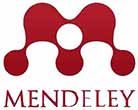Pengaruh Model Pembelajaran Berbasis Masalah Terhadap Penguasaan Konsep IPS dan Kemampuan Pemecahan Masalah Sosial Murid SD Gugus 3 Kecamatan Kahu Kabupaten Bone
Abstract
Keywords
Full Text:
PDFReferences
Anderson, Lorin W.; Krathwohl, D. R. (2001). A Taxonomy for Learning, Teaching and Assesing: A Revision of Blooms Taxonomy of Educational Objectives (Longman (ed.); Complete e). http://eduq.info/xmlui/handle/11515/18345
-------------, J. (2009). Mathematics Curriculum Development and the Role of Problem Solving. 18.
Arends, D., & Kilcher, A. (2010). Teaching for Student Learning: Becoming an Accomplished Teacher - Dick Arends, Ann Kilcher - Google Buku. In Routledge. https://books.google.co.id/books?hl=id&lr=&id=d2ONAgAAQBAJ&oi=fnd&pg=PP1&dq=Teaching+for+student+learning:+Becoming+an+accomplished+teacher&ots=ED0xWpzKdQ&sig=fHdm9G1KfRhRwtuZDug_ZXfvBOg&redir_esc=y#v=onepage&q=Teaching for student learning%3A Becoming an
Bahri, S. (2015). Implementasi Pendidikan Karakter dalam Mengatasi Krisis Moral di Sekolah. Taallum: Jurnal Pendidikan Islam, 3(1), 5776. https://doi.org/10.21274/taalum.2015.3.01.57-76
Bell, F. H. (1978). Teaching and Learning mathematics (in secondary schools). Iowa: Wm. C.
Bianchi, I., Branchini, E., Burro, R., Capitani, E., & Savardi, U. (2020). Overtly prompting people to think in opposites supports insight problem solving. Thinking and Reasoning, 26(1), 3167. https://doi.org/10.1080/13546783.2018.1553738
De Graaff, E., & Kolmos, A. (2003). Characteristics of Problem-Based Learning. International Journal of Engineering Education, 19(5), 657662.
Dobson, J., & Dobson, T. (2021). Empowering student voice in a secondary school: Character Education through project-based learning with students as teachers. Teacher Development, 25(2), 103119. https://doi.org/10.1080/13664530.2020.1865442
Ellis, A., K. (2010). Teaching And Learning Elementary Social Studies. Borton: Pearson.
Feerick, E. Clerkin, A, & Cosgrove, J. (2022). Teachers understanding of the concept of embedding digital technology in education. Irish Educational Studies, 41(1), 2739. https://doi.org/https://doi.org/10.1080/03323315.2021.2022521
Gallagher, S. A., & William, J. (1992). The Effects of Problem-Based On Problem. SAGE Journals, 36(4), 195200.
Hamalik, O. (2005). Perencanaan Pengajaran Berdasarkan Pendekatan Sistem. Jakarta: Bumi Aksara.
Haug, B. S., & degaard, M. (2014). From Words to Concepts: Focusing on Word Knowledge When Teaching for Conceptual Understanding Within an Inquiry-Based Science Setting. Research in Science Education, 44(5), 777800. https://doi.org/10.1007/s11165-014-9402-5
Hogenboom, S. A. M., Hermans, F. F. J., & Van der Maas, H. L. J. (2021). Computerized adaptive assessment of understanding of programming concepts in primary school children. Computer Science Education, 00(00), 130. https://doi.org/10.1080/08993408.2021.1914461
Johnson, A., P. (2009). Making Connections in Elementary and Middle School Social Studies. Minnesota State University, Mankato, USA. Sage Publications, Inc. https://us.sagepub.com/en-us/nam/making-connections-in-elementary-and-middle-school-social-studies/book232933
Klegeris, A., & Hurren, H. (2011). Impact of problem-based learning in a large classroom setting: Student perception and problem-solving skills. American Journal of Physiology - Advances in Physiology Education, 35(4), 408415. https://doi.org/10.1152/advan.00046.2011
Klein, S., B. (2018). Learning Principles and Applications. Mississippi State University, USA. SAGE Publications, Inc. https://us.sagepub.com/en-us/nam/learning/book259379
Kumar, M., & Kogut, G. (2006). Students perceptions of problem?based learning? Teacher Development, 10(1), 105116. https://doi.org/10.1080/13664530600587295
Langi, W., L. (2020). Penerapan Model Pembelajaran Number Heads Together Berbantuan Mind Mapping dalam Pembelajaran IPS untuk Meningkatkan Penguasaan Konsep Siswa. PROSIDING SEMINAR NASIONAL II FKIP UKI TORAJA, 25- 26 NOVEMBER 2020, 7175. https://www.researchgate.net/publication/351006207_Penerapan_Model_Pembelajaran_Number_Heads_Together_Berbantuan_Mind_Mapping_dalam_Pembelajaran_IPS_untuk_Meningkatkan_Penguasaan_Konsep_Siswa
Mansor, R., Halim, L., & Osman, K. (2010). Teachers knowledge that promote students conceptual understanding. Procedia - Social and Behavioral Sciences, 9, 18351839. https://doi.org/10.1016/j.sbspro.2010.12.410
McClure, L. F., Chinsky, J. M., & Larcen, S. W. (1978). Enhancing social problem-solving performance in an elementary school setting. Journal of Educational Psychology, 70(4), 504513. https://doi.org/10.1037/0022-0663.70.4.504
Montfort, D., Brown, S., & Pollock, D. (2009). An investigation of students conceptual understanding In related sophomore to graduate-level engineering and mechanics courses. Journal of Engineering Education, 98(2), 111129. https://doi.org/10.1002/j.2168-9830.2009.tb01011.x
Ozkan, G., & Umdu Topsakal, U. (2021). Investigating the effectiveness of STEAM education on students conceptual understanding of force and energy topics. Research in Science and Technological Education, 39(4), 441460. https://doi.org/10.1080/02635143.2020.1769586
Radosavljevich, P. R. (1911). What is Education. Pedagogical Seminary, 18(1), 3143. https://doi.org/10.1080/08919402.1911.10532774
Santrock, J., W. (2004). Educational psychology, 2nd ed. McGraw-Hill. https://psycnet.apa.org/record/2003-06589-000
Sapriya. (2017). Pendidikan IPS. Bandung: PT Remaja Rosdakarya.
Schunk, D. H. (2012). Learning theories an educational perspective sixth edition. Pearson.
Shishigu, A., Hailu, A., & Anibo, Z. (2018). Problem-based learning and conceptual understanding of college female students in physics. Eurasia Journal of Mathematics, Science and Technology Education, 14(1), 145154. https://doi.org/10.12973/ejmste/78035
Sdervik, I., Mikkil-Erdmann, M., & Vilppu, H. (2014). Promoting the Understanding of Photosynthesis Among Elementary School Student Teachers Through Text Design. Journal of Science Teacher Education, 25(5), 581600. https://doi.org/10.1007/s10972-013-9373-9
Sungur, S., Tekkaya, C., & Geban, . (2006). Improving achievement through problem-based learning. Journal of Biological Education, 40(4), 155160. https://doi.org/10.1080/00219266.2006.9656037
Uliyandari, M., Emilia Candrawati, Anna Ayu Herawati, & Nurlia Latipah. (2021). Problem-Based Learning To Improve Concept Understanding and Critical Thinking Ability of Science Education Undergraduate Students. IJORER : International Journal of Recent Educational Research, 2(1), 6572. https://doi.org/10.46245/ijorer.v2i1.56
Ulya, H. (2016). Profil Kemampuan Pemecahan Masalah Siswa Bermotivasi Belajar Tinggi Berdasarkan Ideal Problem Solving. Jurnal Konseling Gusjigang, 2(1), 9096. https://doi.org/10.24176/jkg.v2i1.561
Velthuis, C., Fisser, P., & Pieters, J. (2014). Teacher Training and Pre-service Primary Teachers Self-Efficacy for Science Teaching. Journal of Science Teacher Education, 25(4), 445464. https://doi.org/10.1007/s10972-013-9363-y
Voss, J. F., Greene, T. R., & Timothy, A. Post, and B. C. P. (1983). Problemsolving skill in the social sciences. The Psychology of Learning and Motovation: Advances in Research and Theory, 17.
Webb, M. E., Little, D. R., Cropper, S. J., & Roze, K. (2017). The contributions of convergent thinking, divergent thinking, and schizotypy to solving insight and non-insight problems. Thinking and Reasoning, 23(3), 235258. https://doi.org/10.1080/13546783.2017.1295105
Weisberg, R. W. (2015). Toward an integrated theory of insight in problem solving. Thinking and Reasoning, 21(1), 539. https://doi.org/10.1080/13546783.2014.886625
Wood, D., F. (2011). ABC of Learning and Teaching in Medicine. Occupational Medicine, 61(6), 446446. https://doi.org/10.1093/occmed/kqr093
Wu, C. L., Tsai, M. N., & Chen, H. C. (2019). The neural mechanism of pure and pseudo-insight problem solving. Thinking and Reasoning, 0(0), 123. https://doi.org/10.1080/13546783.2019.1663763
DOI: https://doi.org/10.30596/edutech.v8i2.11390
Refbacks
- There are currently no refbacks.





